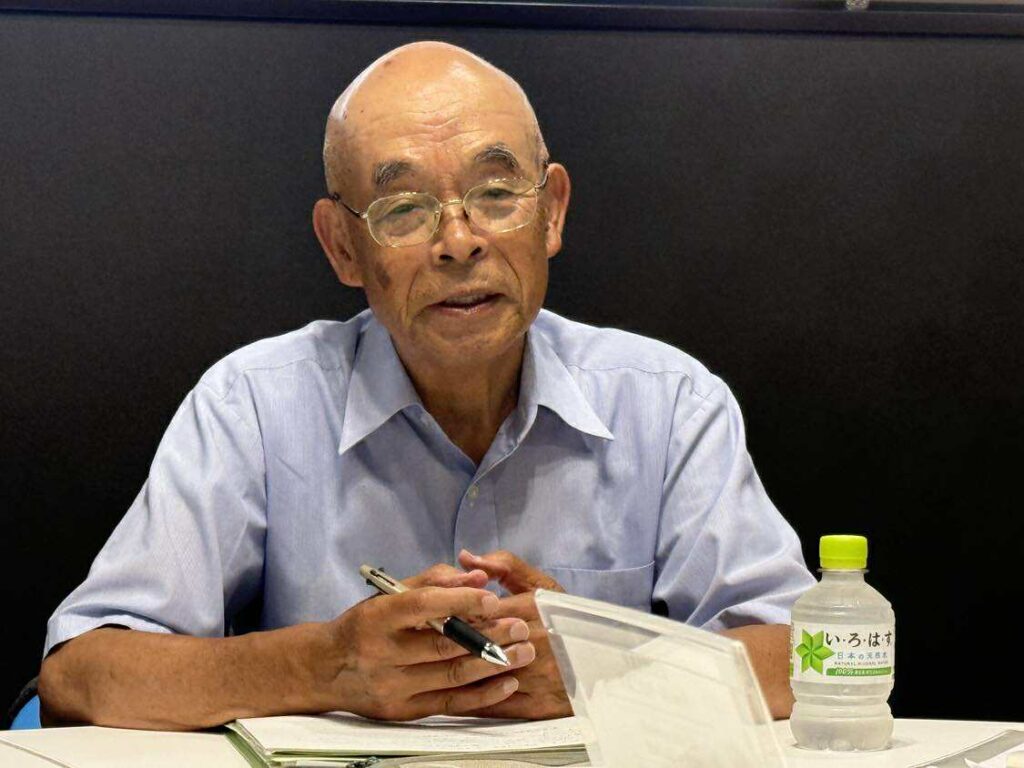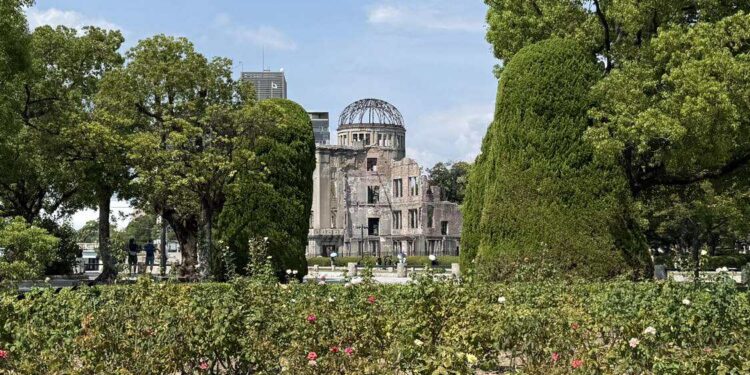*This article is part of a series of publications as part of our trip to Japan on the occasion of the Ticad 9
Eighty years after Hiroshima’s tragedy, the city remains a universal symbol of the fight against nuclear armaments. As part of our trip to Japan, we had the opportunity to discover this city up closely forever by history and engaged in a fight of memory and peace.
The visit of Peace Memorial Museum impresses by the force of his story and the sobriety of his staging. Each room tells, with an overwhelming intensity, the horror of August 6, 1945, but also the resilience of a population which has chosen to transform its pain into a universal message. Calcinated personal objects, written testimonies and archive images constantly recall the need to prevent such a drama from happening again.
Beyond the archives and exhibits, we had the rare privilege to meet one of the last hibakushasurvivor of the atomic bomb still alive. His face, marked by time but illuminated by an inner force, alone embodies the story of an entire generation.
He told us his memories of this heavy nuclear bombardment period. The survivor told us about the stigma left by the bomb: physical scars, but also the pain of social exclusion that hibakusha has long suffered, perceived as carriers of incurable disease. However, over the decades, he chose to tirelessly testify in schools, international forums and in front of the young generations, so that memory does not fade.

This testimony has deeply marked us, because it illustrates that Hiroshima’s memory far exceeds the borders of Japan. The lessons of this city resonate for the whole world: they recall that war and weapons of mass destruction leave scars that cross generations.
Through its commitment, the survivor embodies a form of peaceful resistance, where the transmission of memory becomes an act of prevention. His presence among us underlines that The fight against nuclear proliferation is above all a collective responsibilitya call for vigilance and action for all nations, including those which, like Tunisia, aspire to promote peace and without compromise on human security.
Today, Hiroshima is not only a city of memory, but also a world capital of peace. Its leaders, associations and citizens carry constant plea in international forums, recalling that nuclear deterrence cannot constitute a security guarantee. The message carried by this survivor and so many other hibakusha resonates as a warning to humanity: The world is not allowed to forget and must work for real and universal disarmament.








